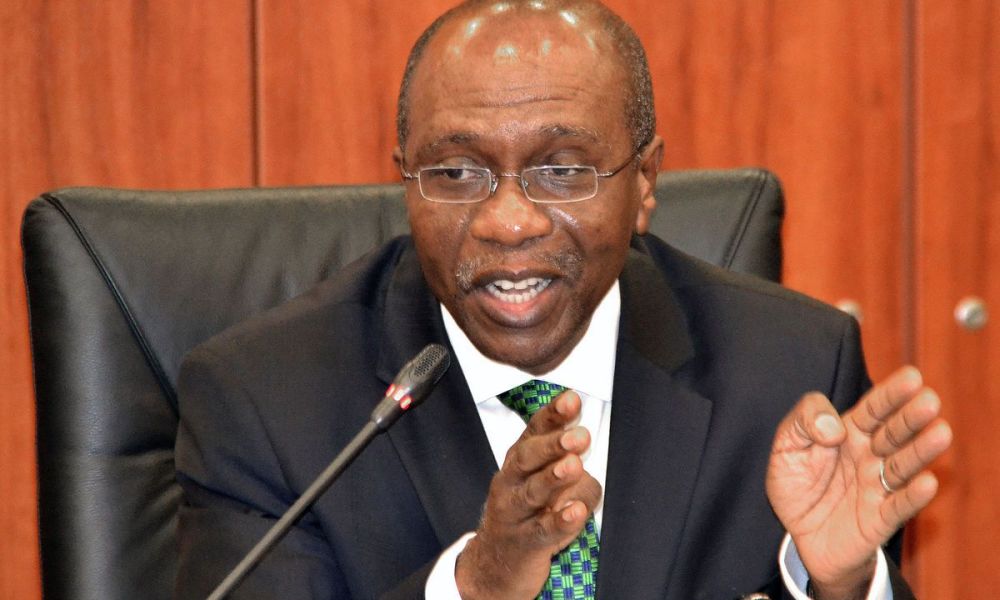Members of the Central Bank of Nigeria (CBN) Monetary Policy Committee (MPC), on Tuesday, rose from its second meeting for the year, voting unanimous to retain the benchmark Monetary Policy Rate (MPR) at 13.5% and hold all other policy parameters constant.
That means the asymmetric corridor of +200/-500 basis points around the MPR remains; the Cash Reserve Ratio (CRR) stays at 27.5%; while the Liquidity Ratio is retained at 30%.
According to a communiqué issued at the end of the two-day meeting, the committee opted to retain the MPR, because doing otherwise “will be contradictory to the recent reduction of interest rate in the CBN intervention windows from 9 to 5%.”
The communiqué signed by Godwin Emefiele, the chairman of the MPC and CBN Governor, noted that increasing the “MPR will be taken by the Deposit Money Banks (DMBs) as in invitation to increase lending rates (a situation that) will be most undesirable at this point in time when efforts are being made to avert a recession.
“Besides, a reduction in the MPR, will not encourage the DMBs to reduce lending rates,” at a time other strategies of the CBN are helping to reduce lending rates in furtherance of the growth objective.
Meanwhile, the committee expressed satisfaction with the growth recorded in aggregate banking industry credit by N2.35tr since the CBN first set the minimum Loan to Deposit Rate beginning from May 2019.
Sectoral distribution of credit in the nine months between end-May 2019 and end-February 2020 showed that Manufacturing received the lion’s share of N533.06bn or 22.68%; General Retail and Consumer Loans, N380.71bn, or 16.2%; General Commerce, or N229.87bn, 9.78%; while Agriculture, Forestry and Fishing got N163.04bn or 6.93%. Information and Communications received N163.69bn or 6.96% of the total loan portfolio of Nigerian banks for the period; Finance and Insurance followed with N131.2bn, or 5.58%; Construction, N112.25bn, or 4.77%; while Transportation and Storage got N45.42bn or 1.93%, amongst others.
This, the members said, reflects the potency of the policy, following which they urged the apex bank’s management “to sustain the current momentum of improved flow of credit to the private sector in Nigeria.”
The MPC stressed the need “for coordination with the fiscal authorities, to strengthen access to credit to some critical sectors of the economy, including the weak and vulnerable population, particularly those in the informal sector through the setting up of a special fund, as well as support the enforcement of credit recovery.”
The committee equally noted the dismal performance in the equities market as the All-Share Index (ASI) shed 17.3% and market capitalization, 10.73% between end-December 2019 and March 20, 2020. This “was largely attributed to profit-taking and divestment by foreign portfolio investors, the delisting of shares of three quoted companies and capital outflow associated with the COVID-19 and subdued global economic activity.”
The MPC also expressed satisfaction at the continued resilience of the nation’s banking system, as demonstrated by the further drop in the ratio of Non-Performing Loans (NPLs) from 6.59% in January to 6.54% in February 2020, which it noted is nevertheless still above the 5.0% prudential benchmark.
The committee also hinted at the uncertainty in the global economy over the medium-term, especially given the “increased deterioration in financial market conditions and weak global output growth.
“The major headwinds to the current projection for global growth include: disruption to the global supply chain arising from the COVID-19 pandemic; oil price downturn as a result of subdued global demand, vulnerabilities in major financial markets; rising corporate debt in the advanced economies and public debt in some Emerging Market and Developing Economies; as well as broad uncertainties leading to adverse shocks to foreign investment flows,” the noted further.
Trending Today
Menu








